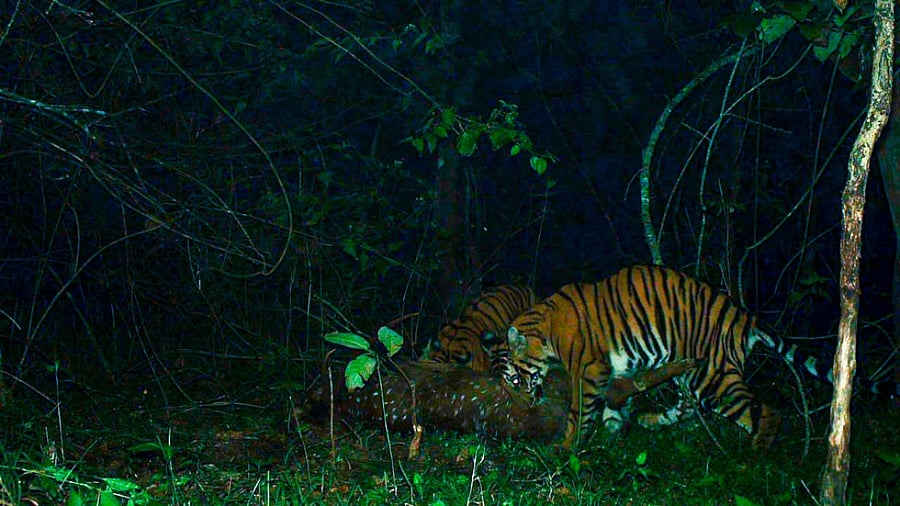
Three tiger cubs roaming around the boundary of Antarasante range of Nagarahole Reserve have kept forest officials on their toes.
Their mother was killed by a snare four days ago and the officials have to ensure that the young animals do not stray into the territory of another big cat or a human habitat.
Things changed on Tuesday when camera traps revealed that the cubs have already made their kill.
Officials had feared that the three cubs — aged 10 to 11 months — might stray into the neighbouring territory of a tigress with four cubs, which would put them at the risk of a territorial fight.
As many as 130 personnel from the department, captive elephants, 30 camera traps and two drone cameras were deployed in the search for the cubs. Considering that the animals are too young to survive a fight, a plan was drawn up to extract them and keep them in a rescue centre for a short period before moving them to a protected area with low risks.
However, on Tuesday, the personnel found the carcass of a spotted deer killed by a carnivore. They installed camera traps in the area and checked the same on Wednesday to find that the cubs had made the kill and returned to the scene to finish the meal.
Sources said the cubs have made two kills over the last four days.
"This is a positive step forward as it indicates that the cubs are learning to survive on their own. The three are in good health and are keeping themselves in the territory of their mother. The department will now keep a close watch. We will assess the situation before taking the next step," Chief Wildlife Warden Vijaykumar Gogi told DH.
He said trapping the cubs and transporting them to a rescue centre is only the initial step in their rescue. "The biggest challenge is to reintroduce them into the wild after keeping them away in an enclosure. That brings too much pressure on the animals. The three cubs showing survival skills at such an early stage is a big relief," he said.
The department has kept all options open. Officials said the cubs will need some protection for the next one year. "In the wild, the cubs are protected by their mothers till they are two years old. As long as the cubs do not need intervention, the department has decided to keep a distance and step in only when necessary," an official said.
